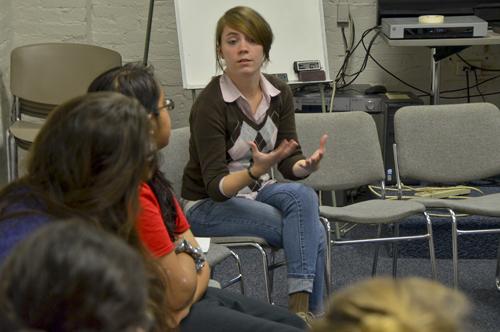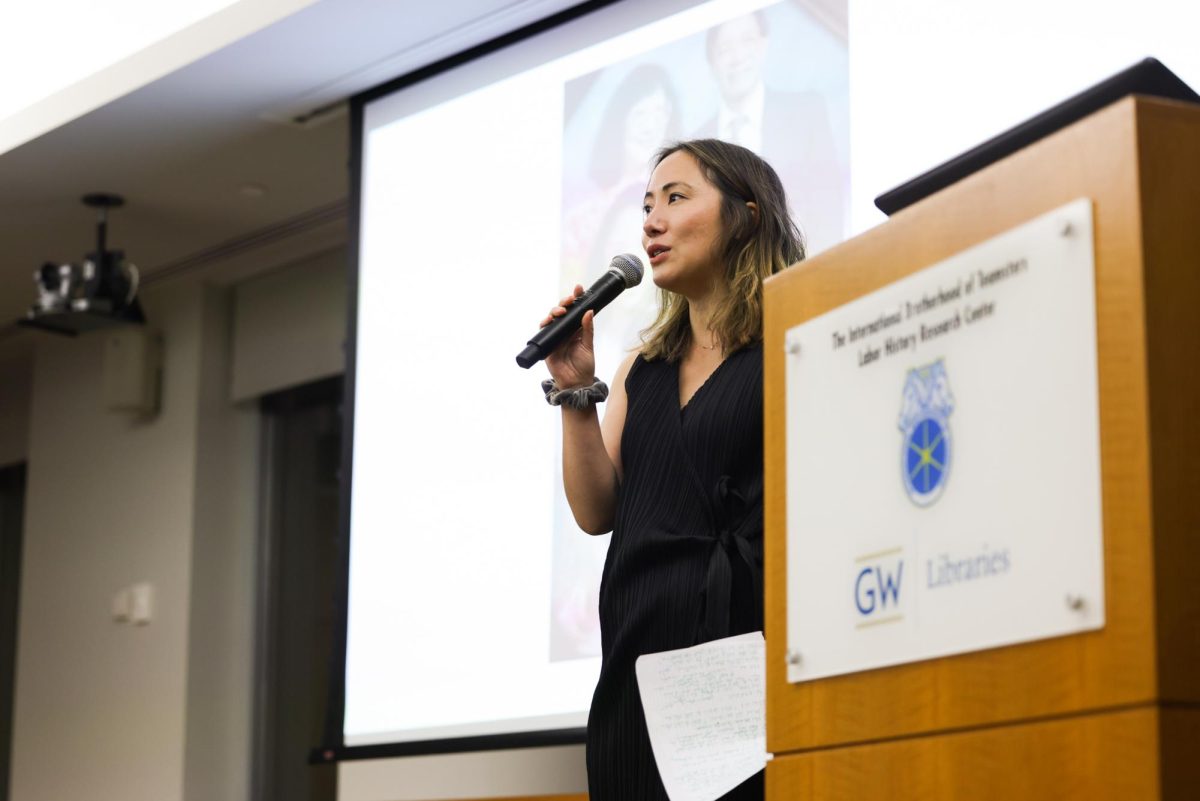
This post was written by Hatchet staff writer Rachel Smilan-Goldstein.
On the eve of Halloween, GW’s Feminist Student Union brought together a small group of students to discuss issues including slut-shaming, cultural appropriation and “Mean Girls.”
“We really based it off of that quote from ‘Mean Girls’: ‘Halloween is the one night of the year when a girl can dress like a slut and no other girls can say anything about it,’” said Negi Esfandiari, a FSU freshman representative, quoting Lindsay Lohan’s character Cady Heron. “We wanted to sort of examine that and see why that is and why that’s appropriate.”
Esfandiari said the goal of the event was to prompt discussion and raise awareness of issues that bubble up during the costumed holiday and last throughout the year. She said the FSU did not want to be “preachy,” instead opting to encourage participants to think about the themes and come to personal conclusions.
On the topic of slut-shaming, she advised against making assumptions about someone’s sexuality based on their costume choice.
“There’s no liberation in showing skin or covering up; the liberation is in the choice to do that,” Esfandiari said about the heightened sexual expression common on the holiday.
Sex and slut-shaming weren’t the only topics tackled. Students addressed cultural appropriation and racially-charged costumes as well, citing high-profile examples from actress Julianne Hough darkening her skin to dress as the character “Crazy Eyes” from Netflix series “Orange is the New Black,” to a viral photo of a pair dressed up as Trayvon Martin and George Zimmerman.
Halloween is about “dressing up as something that you’re not,” said Michela Masson, sophomore FSU co-chair. She said that cultural insensitivity arises because often people don’t think to respect the culture from which their costume draws.
Esfandiari gave the example of portraying an Indian woman and “wearing a bindi and not really knowing what that means.”
Ayla Engelhart, a graduate student in the women’s studies program who moderated the discussion, said she was excited to bring this conversation to GW because it “is a pretty privileged place.”
“A lot of people, I’m not sure the intentions are to be harmful or hurtful and offensive, but the fact is a lot of these costumes and the way they are appropriated are inherently offensive,” said Engelhart. “They think it’s funny, they think it’s humor, they don’t realize that it’s incredibly classist and offensive and coming from a very privileged position.”
For freshman Mallory Hernandez, drawing costume inspiration from a historical figure took “[having] as much respect as you can” and a quick Wikipedia search. To complete her spur-of-the-moment Frida Kahlo costume, Hernandez donned the artist’s signature unibrow and colorful outfits.
Though she said portraying Kahlo for the night was an interesting conversation starter, she noted that more cultural costumes can feel unappreciated when you are standing next to a “sexy cat” in the line outside a fraternity party.



